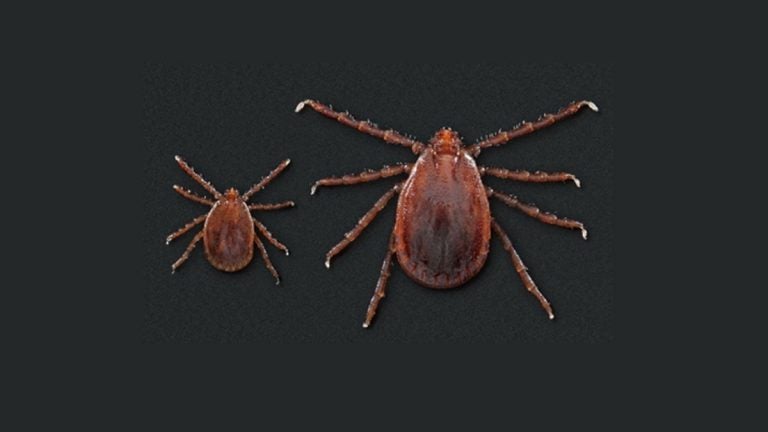Invasive Asian longhorned tick migrates to Delaware
Delaware is the 12th state to spot the invasive Asian longhorned tick.

The Asian longhorned tick was discovered in Delaware for the first time. (Courtesy of DNREC)
An invasive tick previously found in Pennsylvania, New Jersey, and nine other states, has been spotted in Delaware for the first time.
The Asian longhorned tick has yet to transmit any diseases to humans or animals in the U.S. — there only have been two confirmed cases of it attaching to humans here.
However, the invasive species can carry pathogens and diseases that affect humans, wildlife and livestock. The bites have caused serious illness in China, Korea and Japan, according to the Delaware Department of Natural Resources and Environmental Control.
The Asian longhorned tick can reproduce without a mate. It is known to swarm livestock, which can lead to substantial blood loss, and death if not removed.
The insect also can infest wildlife, including mammals and birds, but the impact on wildlife in the U.S. is unknown.
In June, DNREC’s new tick surveillance program found five young Asian longhorned ticks — called nymphs — in northern New Castle County. The creature, which lives in meadows and grassy areas near forested locations, is now one of seven tick species of concern in the state.
Prior to migrating to North America, the Asian longhorned tick traveled to Australia and New Zealand. In the U.S., the bug was first discovered on sheep in New Jersey two years ago. However, the species has been in the U.S. since 2010, according to the Northeast Regional Center for Excellence in Vector-Borne Diseases at Cornell University.
DNREC advises the use of insect repellent containing DEET, spraying clothing with the insecticide Permethrin and wearing clothes that cover your arms and legs. DNREC also advises checking daily for ticks, removing them properly and showering after being outdoors.
Anyone who develops a fever, rash, or other symptoms following a tick bite should contact their health care provider.
Animal owners should consult their veterinarian about methods of tick prevention, and contact a veterinarian immediately if they notice signs of illness in their livestock, horses, or pets.
WHYY is your source for fact-based, in-depth journalism and information. As a nonprofit organization, we rely on financial support from readers like you. Please give today.





